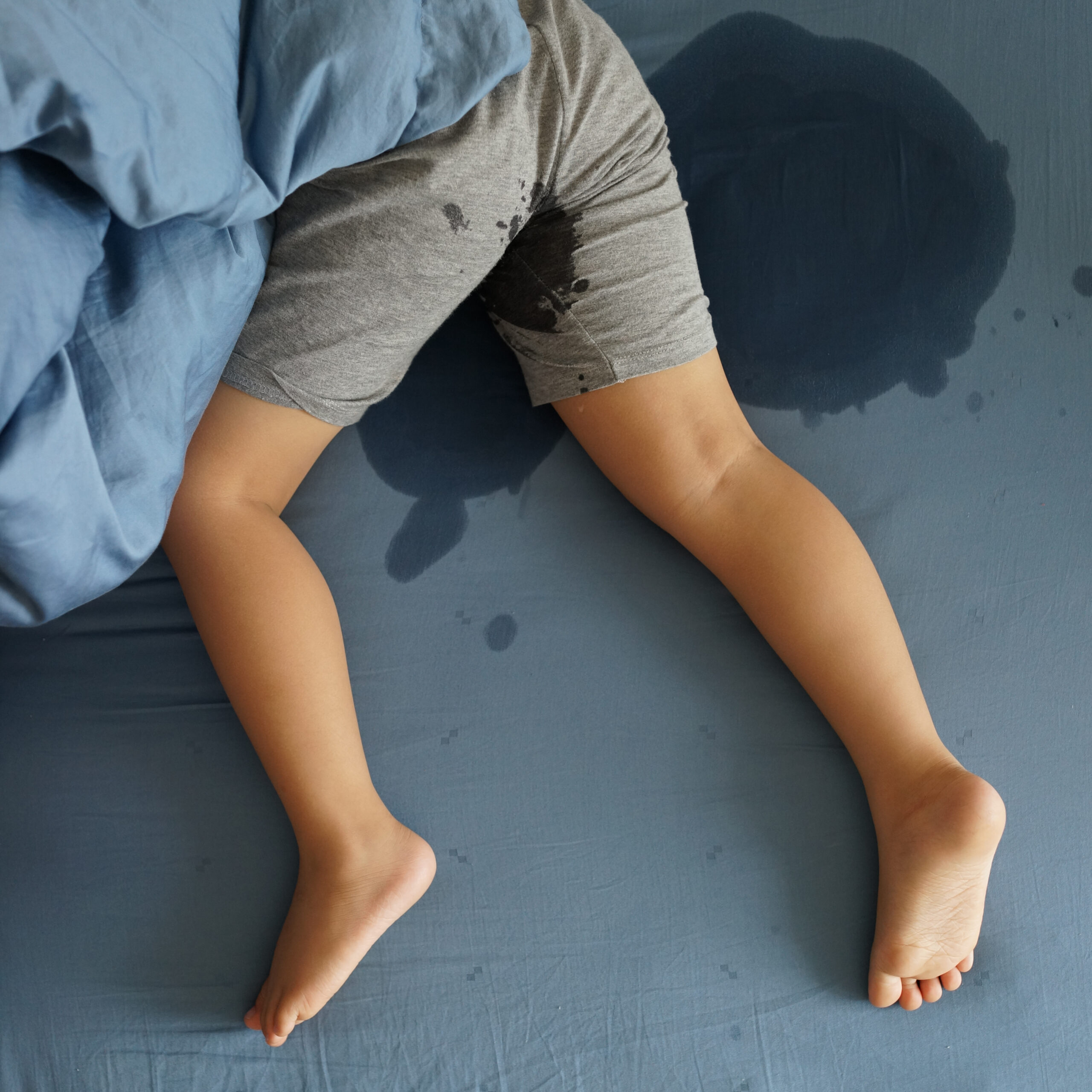
13 Jan Understanding Bedwetting: A Pelvic Floor Physio’s Perspective
Bedwetting, also known as nocturnal enuresis, is the involuntary release of urine during sleep and affects about 5-10% of children aged 7. While most kids are dry at night by the time they start school, for some, achieving nighttime dryness may take a little longer. This can lead to feelings of embarrassment and low self-esteem for the child, especially as they compare themselves to their peers. Additionally, disrupted sleep from bedwetting can impact a child’s overall mood, cognitive functioning, and energy levels.
Possible reasons for bedwetting
From a physiological perspective, there are several possible reasons behind bedwetting:
- Inability to wake to a full bladder: Some children have trouble recognizing their body’s signal to wake up and go to the bathroom.
- Overactive bladder at night: The bladder may become more active during sleep, leading to an inability to store enough urine.
- Increased urine production: The kidneys may produce an unusually high amount of urine at night, more than the bladder can comfortably hold.
- Obstructive sleep apnea (OSA): This condition can interfere with a child’s ability to achieve the deep sleep required for bladder control.
Furthermore, studies have shown that children with bedwetting often experience other sleep disturbances. This can include parasomnias (like sleep talking, night terrors, or sleepwalking), breathing disorders, and daytime sleepiness. All of these factors can compound the issue, making the road to dryness more challenging.
As a parent, it’s completely normal to feel frustrated when your child struggles with bedwetting. But it’s important to remember that bedwetting is not your child’s fault. It is not a sign of laziness or bad behaviour, and being patient and supportive is key.
How can a Pelvic Floor Physio help?
As pelvic floor physiotherapists, we specialize in understanding how the bladder and pelvic muscles function. We work with children and families to:
- Teach strategies that promote proper bladder habits.
- Strengthen the pelvic floor muscles, which play a crucial role in bladder control.
- Address sleep hygiene and techniques that can reduce the likelihood of bedwetting.
We also assess for any underlying causes, such as overactive bladders or issues with bladder signalling. With the right guidance and support, many children can overcome bedwetting and regain their confidence at night.
Understanding bedwetting with Western Women’s and Men’s Health
If you are concerned about your child’s bedwetting or would just like some advice, book an assessment with Urvi or Jacqui. We’re here to help your child feel more in control and support you through this process.
Contact the clinic on (03) 8001 2044 or make an appointment online today.
